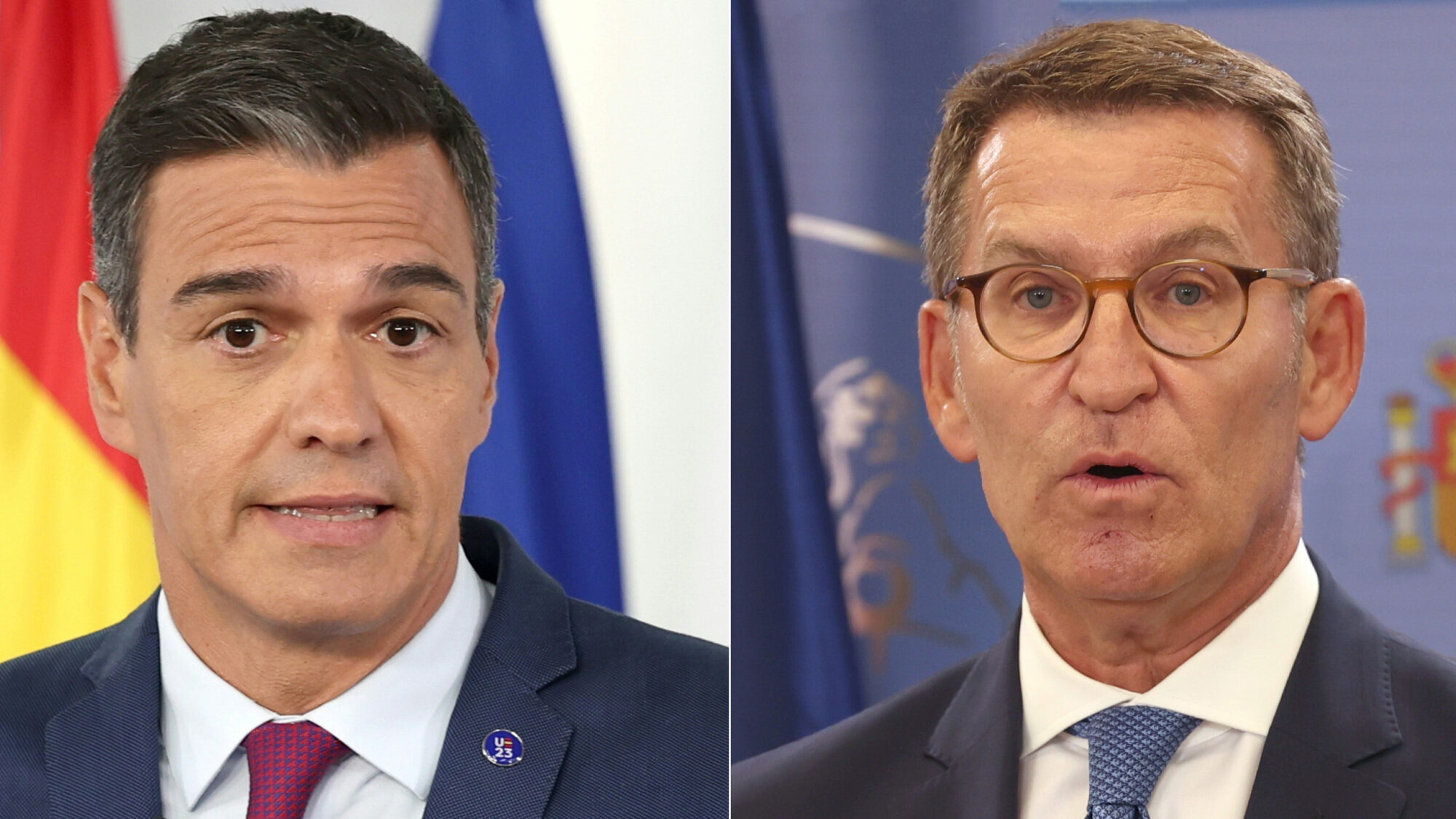
Spain’s acting Prime Minister Pedro Sánchez and the candidate of conservative Partido Popular Alberto Nunez Feijóo
PIERRE-PHILIPPE MARCOU / AFP
The new parliament will hold court on September 27th and 28th to vote for or against centre-right Partido Popular Leader Alberto Núñez Feijóo’s bid to lead the country’s executive branch.
This gives him just over a month to scramble to gather the four more votes he needs to make it into Moncloa, the Spanish presidential house, and definitively save his country from another leftist-progressive-separatist coalition government.
Should Feijóo’s investiture vote fail, centre-left PSOE’s Pedro Sánchez, former and current caretaker president, will then have until November 27 to attempt to form a government. Should the PSOE leader also fail to take control of the government, repeat elections would fall on January 14, after the Christmas and New Year holidays.
The main wildcards both parties need to control are the votes of the Catalan separatist party Junts per Catalunya and the Basque nationalist party Partido Nacionalista Vasca (PNV). The Catalans will not vote yes on any Spanish president, but they can be persuaded to abstain. The Basques have, at the moment, promised to support PSOE, but they are known to be fickle.
Historically, not only nationalist but also conservative and centrist, the two separatist parties helped bring the last two PP governments to power though they eventually switched camps. Their votes, though few, were decisive in bringing down the last PP government and installing Sánchez and his progressive coalition.
At the moment, the PNV has denied the PP its support on the grounds that it cannot be in a coalition—even informally from the parliamentary bench—with VOX, which has pledged its support to Feijóo’s investiture. While the PNV exists to defend historic Basque self-governing privileges, VOX’s platform includes reining in the competencies of regional governments.
At the same time, the PSOE and its new potential partner in a coalition government, the neo-communist Sumar, have already made serious concessions to the PNV and the three separatist parties by ceding them seats in the senate and congress of deputies so they can form their own parliamentary groups and enjoy its privileges.
The PP has criticised the move as having pushed legal limits of the bodies’ statutes too far.
Achieving a parliamentary group means having representation in all the committees, spokespersons and turns of intervention and initiative, in addition to more resources economic, human, and material resources.
The Catalans and Basque independentists have a clear objective: some form of amnesty for those convicted of terrorism and leading an illegal referendum, including fugitive Catalan leader and MEP Carles Puigdemont.
Sánchez and his political associates are happy to acquiesce to gain power, but finding the formula is tricky, both legally and politically. Sánchez, however, has been preparing for this moment. He has stacked the country’s courts in favour of separatists.
Also, allowing the separatist parties to form their own parliamentary group gives them the chance to propose laws that would legalise referendums on regional independence and changes to the penal code. In theory, this sets the stage for some form of amnesty and a referendum for separatists without Sánchez having to lead the legislative effort, leaving the final say on its legality to the court.
The PP has made it clear such concessions are a red line it will not cross. To do so would be political suicide for the party, anyway.
The PNV remains at least ready to be courteous to the PP.
“If the PP calls us, I think that by minimal courtesy, we have to go to the meeting,” Aitor Esteban, the leader of the PNV, said.
He has clarified that the meeting would at least serve as a get-to-know-you meeting with Feijóo, who he has not yet met in person.
Nevertheless, it leaves a ray of hope that Spain could have a pleasant political surprise—and a government—come September 28th.
